Archidamia: A Historical Expedition Through the Peloponnesian War
The Context and Background
The Archidamian War, named after Archidamus II, King of Sparta, was a critical phase in a protracted conflict that defined Ancient Greek history. The war began in 431 BCE and continued until 421 BCE, and while it was part of a larger conflict, it stands as a significant independent event that had profound implications for the Peloponnesian War as a whole.
The Peloponnesian War was triggered by the conflict between Athens and Sparta, two powerful city-states vying for power and influence in the ancient Greek world. When Sparta and its allies launched an invasion of Attica, which was under Athenian influence, the war officially began in 431 BCE. The Archidamian War is considered the first phase of this much larger conflict. It is named after Archidamus II, who was a prominent Spartan king and the driving force behind the early stages of the war.
Archidamus II was known for his conservative nature and his adherence to Peloponnesian traditions. He was a capable military leader and a skilled tactician, known for his cautious approach to warfare. His decision to invade Attica marked a significant escalation in the conflict, challenging Athens’ control over the region.
The Outbreak of the War
The outbreak of the Archidamian War was marked by a series of aggressive moves by Sparta against Athens. In the beginning, Archidamus II and his army embarked on an expedition to ravage the land around Athens. The Spartan forces were well-equipped and organized, and their strategic plans were meticulously laid out. The Spartans marched south from the Isthmus of Corinth, crossing the Peloponnese and advancing into Attica.
Upon entering Attica, the Spartan forces engaged in a series of destructive raids, targeting the agricultural resources that sustained Athens. The Spartans were not content with just looting; they deliberately sought to devastate the agricultural base that was central to Athens’ economic and social stability. The damage was extensive, and the Athenians found themselves facing a grave humanitarian crisis as they struggled to recover from the losses.
The Spartan invasion quickly escalated into a series of pitched battles, with the Athenians, under the leadership of their own generals, engaging in fierce resistance. The battle at the Battle of Oenophyta stands out as one of the early significant confrontations, where the Spartans managed to maintain a temporary hold on the area.
The Impact on Athens
The impact of the Archidamian War on Athens was profound and far-reaching. The initial phase saw the Spartans gaining a substantial foothold in Attica, which led to significant logistical challenges for the Athenians. The Spartan strategy was to wear down the Athenians through relentless raids and constant pressure. The prolonged conflict forced Athens to divert a significant portion of its resources from other fronts to fortify itself and its hinterlands.
Economically, the war took a toll on Athens, primarily due to the destruction of agricultural resources. The Spartan invasion devastated the agricultural lands that were the foundation of the Athenian economy. As a result, the city-state faced food shortages and had to struggle to maintain its population. To address these shortages, Athens was forced to import grain from Egypt, which was a costly endeavor.
The social and cultural impact of the war was equally significant. The prolonged exposure to Spartan aggression led to a rise in the militarization of the Athenian society. The citizens were forced to adapt to a wartime economy, which meant a shift in the allocation of resources and a growing reliance on a standing army. This period marked a period of increased militarism, with citizens being called upon to contribute to the war effort in various capacities.
Politically, the war tested the unity and stability of the Athenian government. With the city under constant threat, the Athenian leadership was forced to navigate complex diplomatic and strategic challenges. There were internal divisions within Athens, with some factions advocating for a defensive stance, while others pushed for more aggressive countermeasures. The tension within the government contributed to a climate of uncertainty and internal strife.
Strategic Responses from Both Sides
Recognizing the threat posed by the Spartans, the Athenians devised several strategic responses to counter the Spartan invasion. Initially, Athens relied heavily on its naval power to protect its vital shipping routes and trade networks. The Athenian fleet, under the command of generals like Thrasybulus and Theramenes, played a critical role in intercepting Spartan supplies and reinforcements. However, the Spartan fleet, under Cimon, also proved to be a formidable force, and both sides engaged in several naval skirmishes.
In addition to naval measures, Athens also sought to strengthen its land defenses. The city began to fortify its perimeter, building new defensive walls and enhancing existing ones. These fortifications were designed to better withstand Spartan invasions and to provide a secure base for the Athenian population. The most significant of these fortifications was the Long Walls, which connected Athens to its port of Piraeus, ensuring that the city could remain supplied even if the land was under Spartan control.
On the other side, the Spartans also engaged in strategic maneuvering. They employed a scorched earth policy, systematically destroying the agricultural lands of Attica and depriving the Athenians of their primary resource. This strategy was aimed at forcing the Athenians into a more defensive posture and increasing their dependence on food imports. The Spartans also sought to break the will of the Athenian population, hoping that prolonged suffering would lead to their capitulation.
Ultimately, the strategic responses of both sides led to a stalemate, with neither able to achieve a decisive victory. The war entered a phase of attrition, with both sides suffering significant losses and the population of Athens being increasingly affected by the relentless campaigns.
The Social and Economic Impact
The social and economic impact of the Archidamian War on both Athens and Sparta was substantial. The Spartan invasion of Attica caused immediate and severe damage to the agricultural infrastructure of Athens, forcing the city to rely more heavily on its resources from overseas. The need for grain imports, particularly from Egypt, created a significant burden on Athenian finances and resources. The reliance on foreign food sources not only strained the economy but also exposed the city to risks associated with long-distance trade, such as piracy and supply disruptions.
The prolonged period of conflict led to a growing divide within the Athenian society. Those who could afford to support the war effort, such as wealthy landowners and merchants, often found their resources stretched thin, while the common people bore much of the burden of sustaining the city through the economic hardships. The constant threat and uncertainty created social tensions and a sense of insecurity among the populace, leading to increased social unrest and a heightened sense of vulnerability.
The impact on the Spartan society was equally profound. While the Spartans were successful in destabilizing Athenian resources, their own economy was also affected. The extensive resources spent on maintaining the army and securing the front lines led to a strain on the Spartan economy. The Spartan system, based on a warrior oligarchy, required constant military expenditure, which diverted funds from other sectors of society. Additionally, the prolonged absence of able-bodied citizens at the front lines had an impact on the agricultural productivity of Sparta, making the Spartan economy increasingly dependent on the wealth and resources of its allies.
The social and economic effects of the war were not immediately apparent, but they contributed to the long-term instability and decline of both city-states. The reliance on external resources and the strain on internal economies created fertile ground for political and social challenges. The war also led to increased militarization and a more aggressive stance in both city-states, contributing to a cycle of conflict that would continue throughout the Peloponnesian War and beyond.
In the next part, we will delve deeper into the military strategies employed by both sides and the key battles that defined the Archidamian War.
Military Strategies and Key Battles
As the Archidamian War progressed, both Athens and Sparta engaged in a strategic dance, each trying to gain a decisive advantage. The military strategies employed by both sides were intricate and highly tactical, reflecting the evolving nature of warfare during this era.
Athens, recognizing the limitations of its defensive positions, began to adopt a more proactive stance. While still focusing on defending its maritime interests, Athens developed a comprehensive strategy that included both land and sea operations. One of the most notable aspects of Athenian strategy was their emphasis on naval superiority. Under the command of notable generals such as Alcibiades and Lamachus, the Athenian navy became a key element in their overall military strategy.
The Athenian navy conducted several offensive operations to disrupt Spartan logistics and to gain control of the Aegean Sea. One of the most significant naval engagements was the Battle of Naxos (428 BCE), where the Athenians successfully defeated a combined Spartan and Theban fleet, further cementing their dominance on the seas. These naval victories not only provided Athens with access to necessary supplies from the west but also served as a psychological boost to the morale of the Athenian troops.
On the land front, Athens continued to invest heavily in fortification works. The Long Walls connecting Athens to Piraeus were a testament to the city's resilience and resourcefulness. These walls not only protected Athens from direct Spartan attacks but also allowed the city to maintain its independence even when Attica was under occupation. The construction of these walls was a monumental undertaking, involving large-scale labor and resources. However, it demonstrated the Athenians' commitment to surviving the siege and maintaining their strategic position.
While these defensive measures were essential, Athens also sought to extend its influence beyond Attica by supporting allied city-states. One of the most significant acts of this nature was the intervention in the Chian War (427-425 BCE), where the Athenians supported the Ionians in their revolt against the Syracusan tyranny. Although this campaign ended in failure, it showcased the extent to which Athens could project its power beyond its immediate borders.
Sparta, on the other hand, employed a combination of traditional hoplite warfare and guerilla tactics to keep Athens on the defensive. Their strategy focused on exploiting the vulnerability of urban centers and using their mobility to raid enemy territories. The Spartan forces, under the command of Brasidas and Lysander, were adept at conducting hit-and-run tactics, striking quickly and unpredictably before retreating back to their bases.
One of the most significant engagements during this phase was the Battle of Amphipolis (422 BCE). This battle pitted Brasidas, an ambitious Spartan general and the architect of the Chian campaign, against an Athenian force led by Thrasybulus. The battle resulted in a significant Athenian defeat, with Brasidas achieving a major victory and capturing Amphipolis. This success was a major blow to Athenian morale and provided the Spartans with a strategic foothold in Thrace.
Nevertheless, the loss at Amphipolis did not deter Athens from continuing its efforts to counter Spartan aggression. The Athenians regrouped and launched a counteroffensive, reclaiming Amphipolis through negotiations and strategic alliances. This turnaround highlighted the resiliency and adaptability of Athenian strategy, though it also underscores the complex and ever-evolving nature of the conflict.
Political Maneuvering and Diplomacy
The Archidamian War was not just fought on the battlefield but also through political and diplomatic means. Both Athens and Sparta engaged in extensive political maneuvering, seeking to secure alliances and isolate their enemies. The political landscape was characterized by shifting allegiances and complex negotiations, as both sides sought to gain leverage over their opponents.
Athens, ever-vigilant about maintaining its power and influence, pursued a policy of allying with other city-states in the region. One of the most crucial alliances formed during this period was with Argos. Argos, traditionally a rival of Sparta, joined the Athenian cause, providing additional manpower and resources to Athens' defense efforts. This alliance was pivotal in keeping Sparta's ambitions in check, particularly in the aftermath of the Battle of Amphipolis.
In parallel, Athens worked to consolidate its hold over its existing territories and ensure the loyalty of its allies. The alliance of Plataea, which had been liberated from Theban control, solidified Athens' position in central Greece. The Athenians also maintained close relations with Corinth and Megara, leveraging their strategic locations to protect their interests and counter Spartan expansion.
However, Athens faced significant opposition from Persia, which remained a critical ally for Sparta. Persia saw an opportunity to gain influence in the region by aiding Sparta, which was perceived as a more stable and reliable ally against Athenian dominance. This Persian support provided Sparta with the resources and military aid necessary to sustain its war efforts, complicating Athens' diplomatic efforts.
On the Spartan side, the political maneuvering involved maintaining unity within their confederation. Despite internal divisions, particularly related to the issue of Spartan hegemony, Sparta maintained a relatively cohesive front. The role of Lysander, a rising star in Spartan politics, was crucial in coordinating Spartan military operations and maintaining control over the allied contingents.
Diplomatically, Sparta sought to isolate Athens by fostering dissent within its own ranks and undermining its allies. Brasidas, in particular, was adept at fomenting separatist movements in Athens' allied states, such as Chalcis and Eretria. By encouraging defections and rebellions, Sparta hoped to weaken Athens' grip on the Delian League and reduce its resources.
Despite these efforts, Athens managed to maintain a degree of control over its allies and prevent a complete breach in its coalition. The political landscape remained fluid and unpredictable, with shifting alliances and shifting loyalties. The constant jockeying for position and influence underscored the dynamic nature of the conflict and the importance of maintaining robust diplomatic relations.
Conclusion of the Archidamian Phase
The Archidamian War concluded not with a single decisive battle but with the onset of negotiation and diplomacy. As the years passed, both Athens and Sparta realized that the relentless cycle of warfare was too costly and unsustainable. The Spartan army, though resilient, faced significant challenges in sustaining its long-term military campaigns. The Spartan economy and social structures were stretched to their limits, and the constant pressure on Attica took a toll on Spartan resources and morale.
Athens, while managing to hold its own internally, faced its own set of challenges. The prolonged war effort, combined with the need to maintain a powerful fleet and fortified positions, put tremendous strain on the Athenian economy. The loss of Amphipolis was a significant blow, and Athens needed a respite to recover and reorganize its forces.
Recognizing the futility of continued hostilities, the two sides began试探性地寻求和平解决方案。在经历了数年的血腥冲突之后,双方都感到筋疲力尽,渴望结束这场战争。经过一系列复杂的谈判,最终在前421年,双方签订了一项停战协定——《尼西阿斯合约》(Nicias Peace),暂时结束了持续十年的战事。
尽管《尼西阿斯合约》为双方提供了一个短暂喘息的机会,但它并没有解决根本问题。随着新的领导人上台和新局势的发展,《尼西阿斯合约》很快就会破裂,导致整个希腊陷入更加严重的冲突之中。《尼西阿斯合约》的签订标志着一个时代的结束,也为后续的埃庇达鲁斯战局和整个伯罗奔尼撒战争奠定了基础。
回顾这段历史,我们可以看到,Archidamian War不仅仅是一场军事冲突,它深刻反映了古希腊社会、经济和政治的复杂性。战争的影响远远超出了战场,对参与各方的社会结构和未来发展产生了深远影响。这场战争不仅改变了雅典和斯巴达的命运,也对整个古希腊世界留下了不可磨灭的印记。
Conclusion of the Archidamian Phase
The Archidamian War concluded not with a single decisive battle but with the onset of negotiation and diplomacy. As the years passed, both Athens and Sparta realized that the relentless cycle of warfare was too costly and unsustainable. The Spartan army, though resilient, faced significant challenges in sustaining its long-term military campaigns. The Spartan economy and social structures were stretched to their limits, and the constant pressure on Attica took a toll on Spartan resources and morale.
Athens, while managing to hold its own internally, faced its own set of challenges. The prolonged war effort, combined with the need to maintain a powerful fleet and fortified positions, put tremendous strain on the Athenian economy. The loss of Amphipolis was a significant blow, and Athens needed a respite to recover and reorganize its forces.
Recognizing the futility of continued hostilities, the two sides began to seek peace solutions. In 421 BCE, a series of negotiations led to the formation of the Peace of Nicias, a ceasefire agreement that temporarily brought the war to an end. The Peace of Nicias was named after the Athenian general Nicias, who was one of the chief negotiators on the Athenian side.
The Peace of Nicias was more than just a temporary truce. It included several significant provisions designed to maintain the balance of power and prevent a recurrence of hostilities. The agreement stipulated that neither side would engage in naval or land battles, and it provided for the return of territories captured during the war. Additionally, it established a joint Spartan-Athenian council to oversee the implementation of the peace terms and monitor any potential violations.
Aftermath and Legacy
The aftermath of the Archidamian War saw a period of relative calm, but it was also marked by deep-seated tensions that would eventually lead to renewed hostilities. In Athens, the return to relative peace allowed the city to focus on internal reconstruction and the rebuilding of its defenses. The Athenian general Lysander, who had emerged as a key figure during the conflict, played a significant role in enforcing the peace terms on the Spartan side. However, his ambitious nature and perceived arrogance led to his downfall and eventual execution during the Syracusan War (413-412 BCE).
On the Spartan side, the peace agreement marked a temporary respite but did little to address the underlying issues within the Spartan system. The Spartan confederation continued to face challenges in maintaining unity and providing support to its allies. The Spartan economy, which had been strained by the prolonged war effort, saw a continued decline in the decades that followed. The peace was seen more as a strategic pause rather than a permanent solution to the underlying tensions between the two great powers.
The Archidamian War had profound and lasting impacts on both Athens and Sparta. For Athens, the war highlighted the limits of its military and economic resources. The experience of dealing with a determined and resolute opponent like Sparta revealed the vulnerabilities in the Delian League and the need for strategic flexibility. The Athenians began to focus more on developing a more resilient and adaptable strategy, moving away from their previous reliance on overwhelming naval power.
For Sparta, the war underscored the challenges of maintaining a long-term military commitment. The Spartan system, based on a rigid aristocratic structure and a reliance on a core group of hoplites, struggled to adapt to the demands of modern warfare. The peace agreement, while providing a temporary respite, did little to address the underlying economic and social issues that plagued the Spartan state. The Spartan confederation continued to face fragmentation and internal strife in the years that followed, ultimately leading to its decline as a dominant power.
The impact of the Archidamian War extended far beyond the military and political spheres. The experience of prolonged conflict had a significant psychological impact on both societies, fostering a sense of resilience and adaptation that would shape their responses to future challenges. The war also had profound effects on the social and economic structures of both Athens and Sparta, leading to changes in the way these city-states operated and interacted with each other and the wider Greek world.
Ultimately, the Archidamian War was a critical phase in the larger Peloponnesian War. Its outcomes and the lessons learned during this period shaped the course of the conflict and influenced the strategies and tactics employed by both sides. The Peace of Nicias, while providing a temporary respite, did little to address the underlying issues that led to renewed hostilities. The legacy of the Archidamian War can be seen in the way subsequent events played out, with the eventual resumption of hostilities leading to the downfall of both Athens and Sparta and the broader decline of the Greek city-states in the years that followed.
Reflecting on the Archidamian War, we can gain valuable insights into the nature of warfare and the complex interplay of political, economic, and social factors that shape the outcomes of conflicts. The war serves as a poignant reminder of the human cost of prolonged conflict and the need for sustainable and equitable solutions to international disputes.

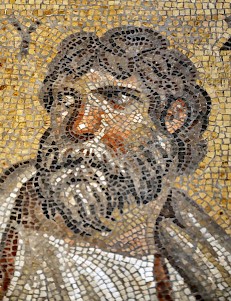
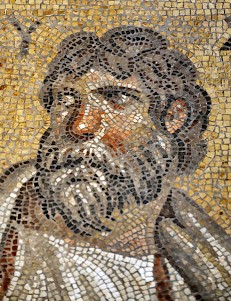
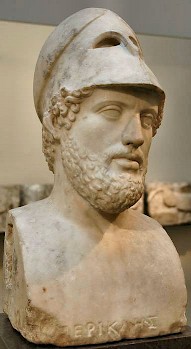



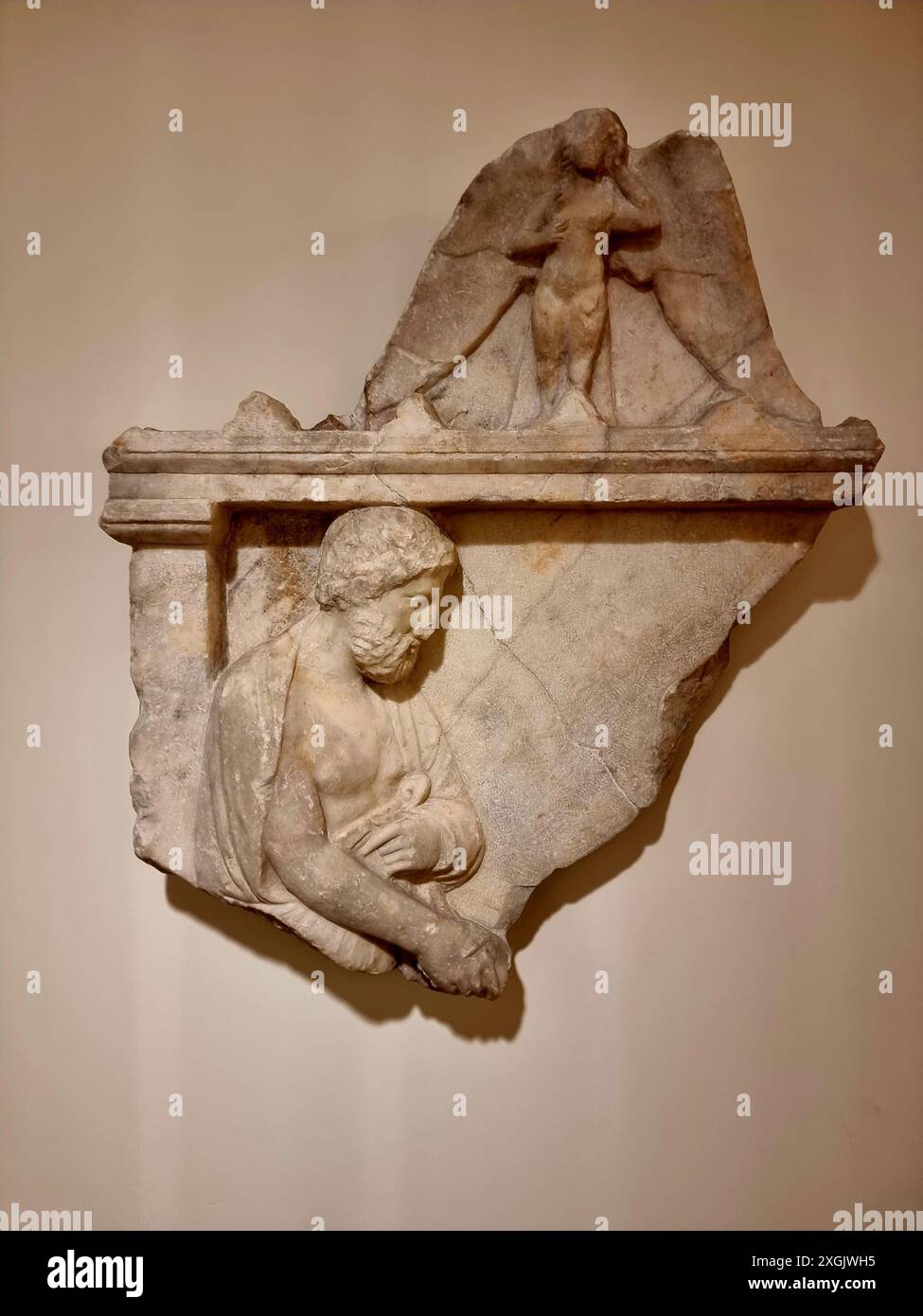
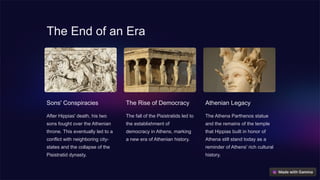






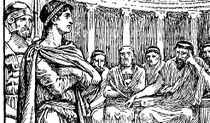
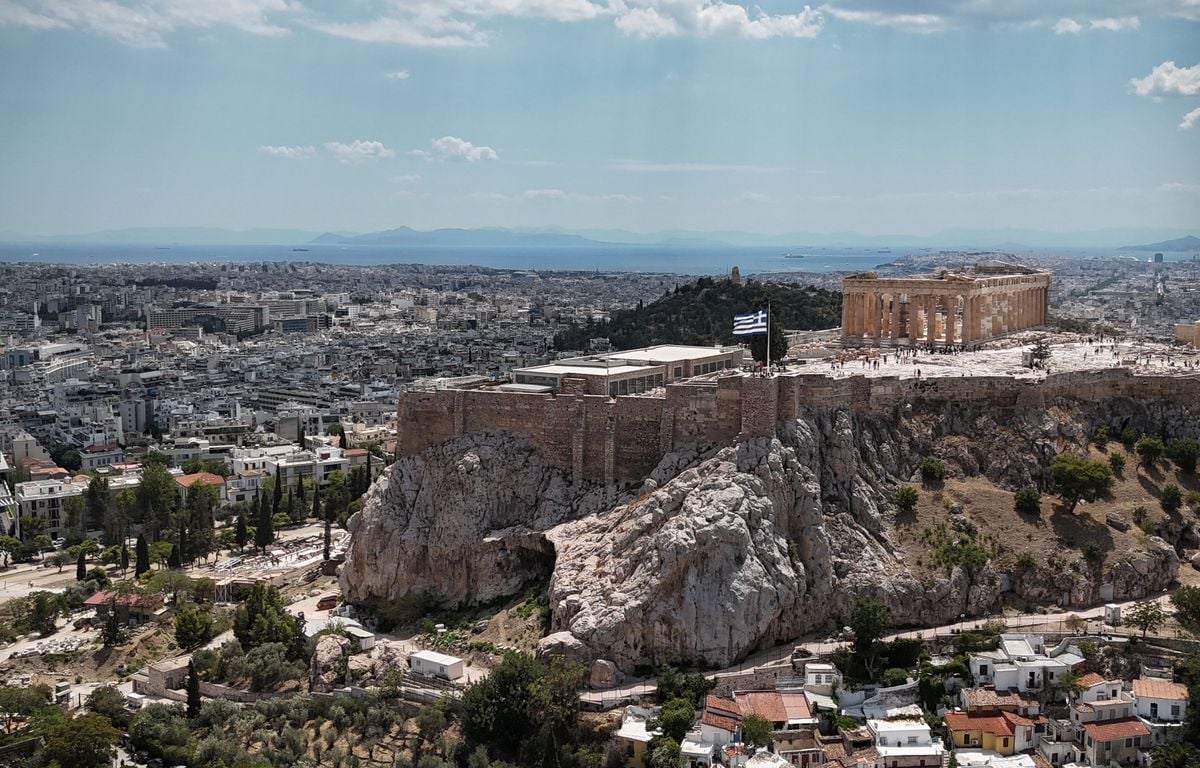
Comments